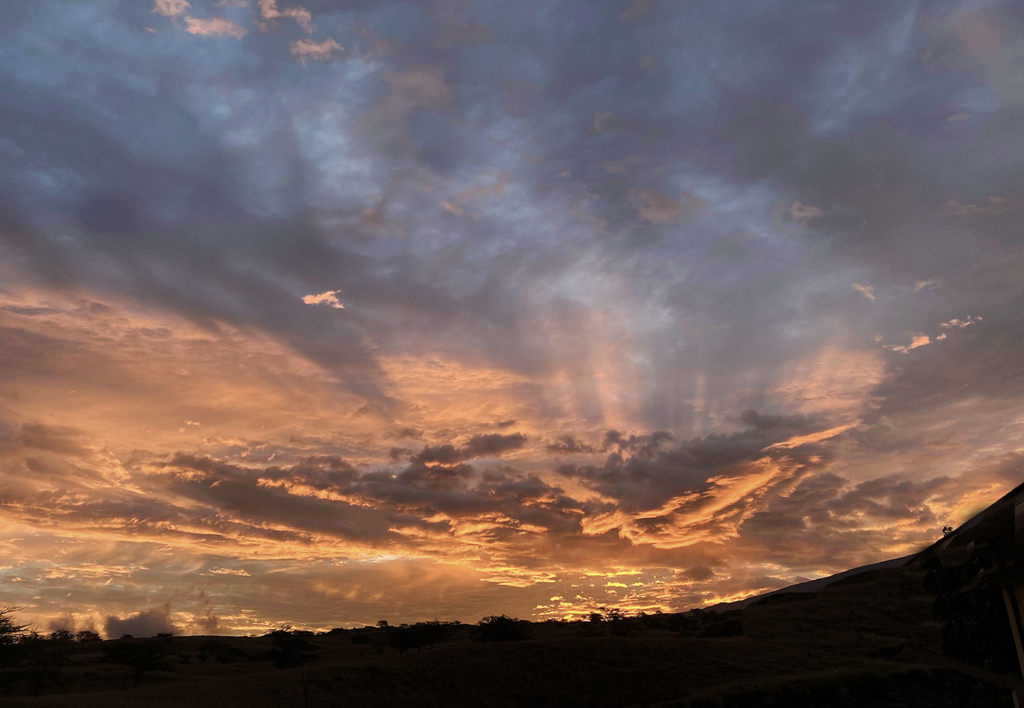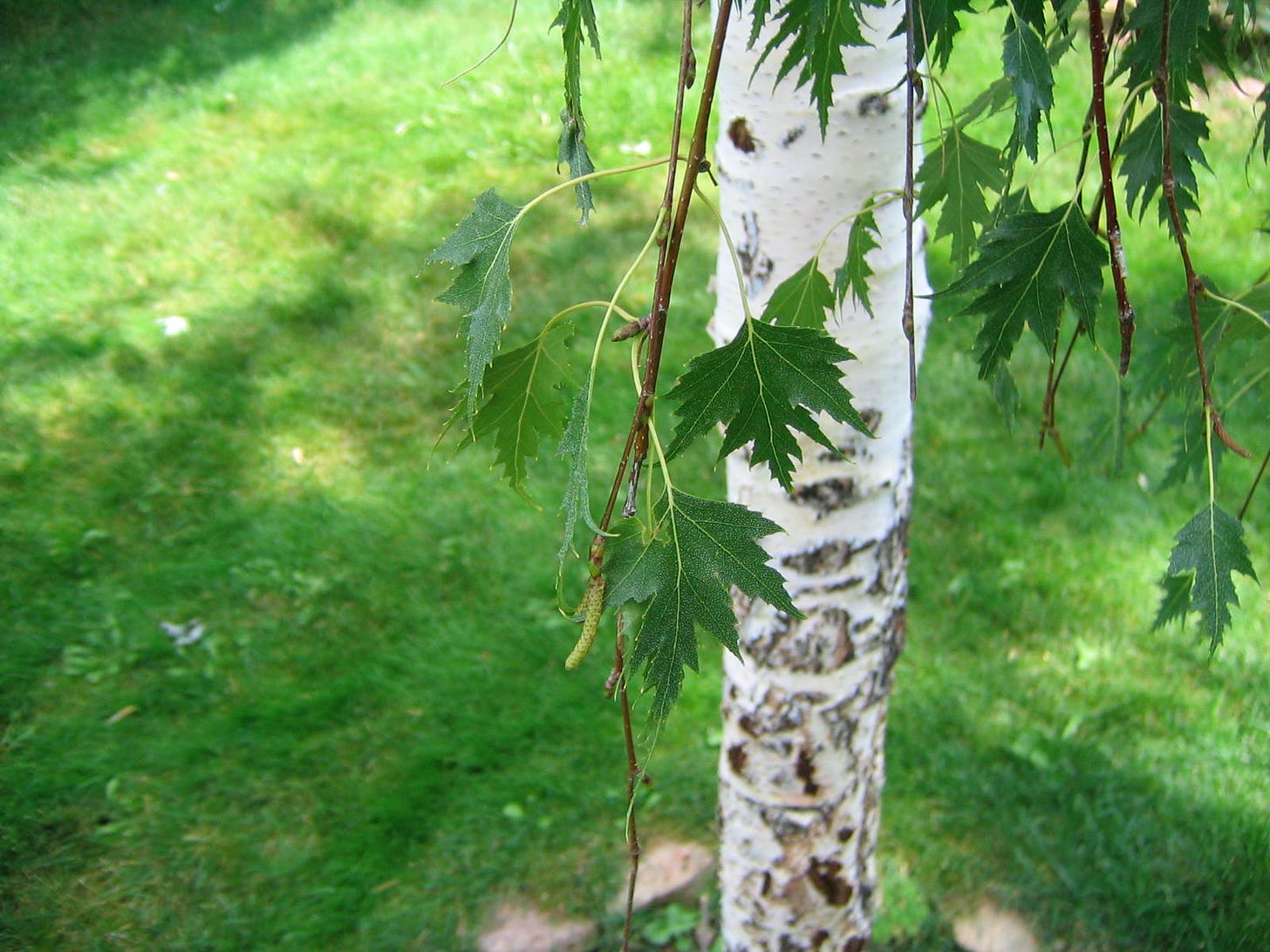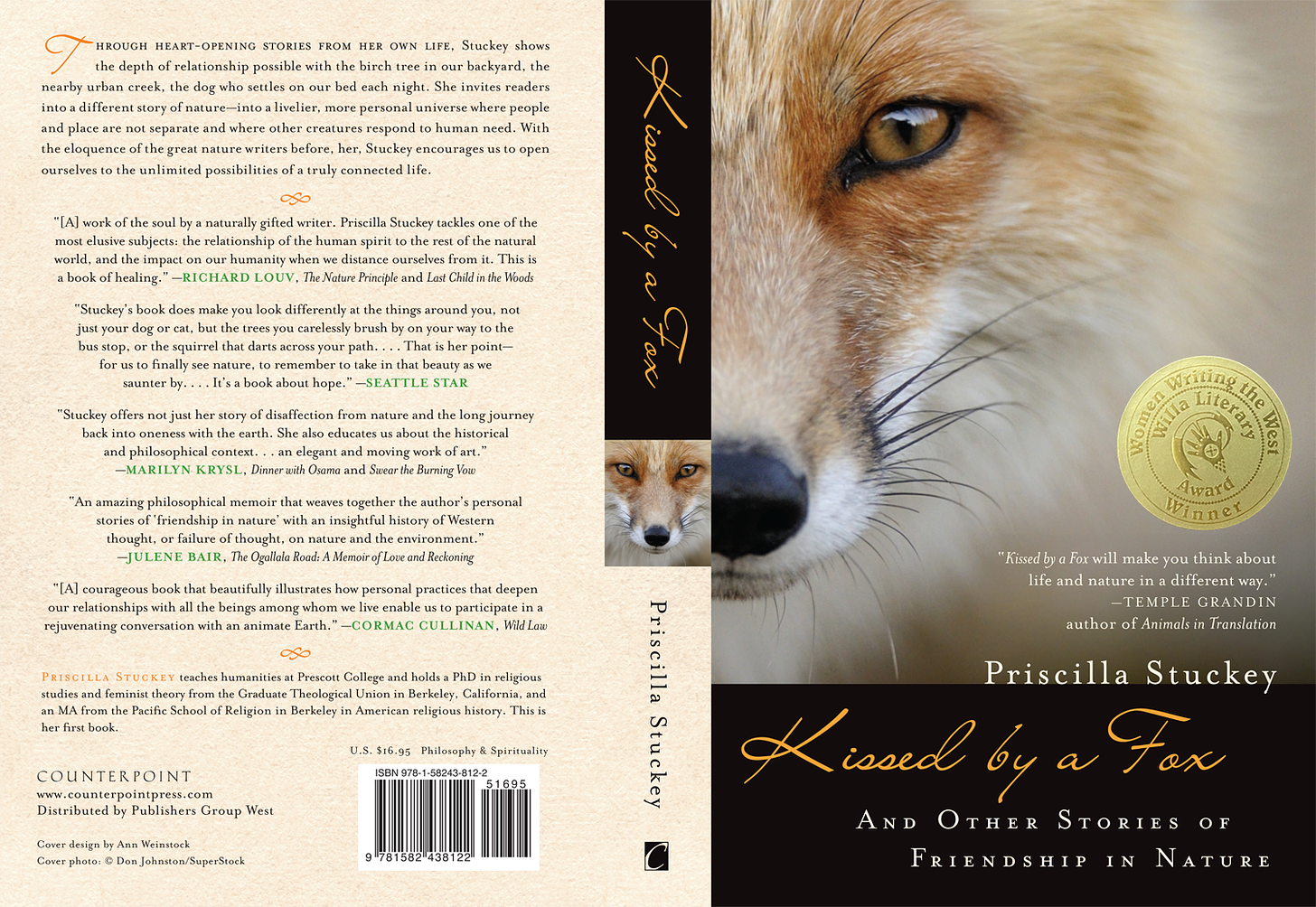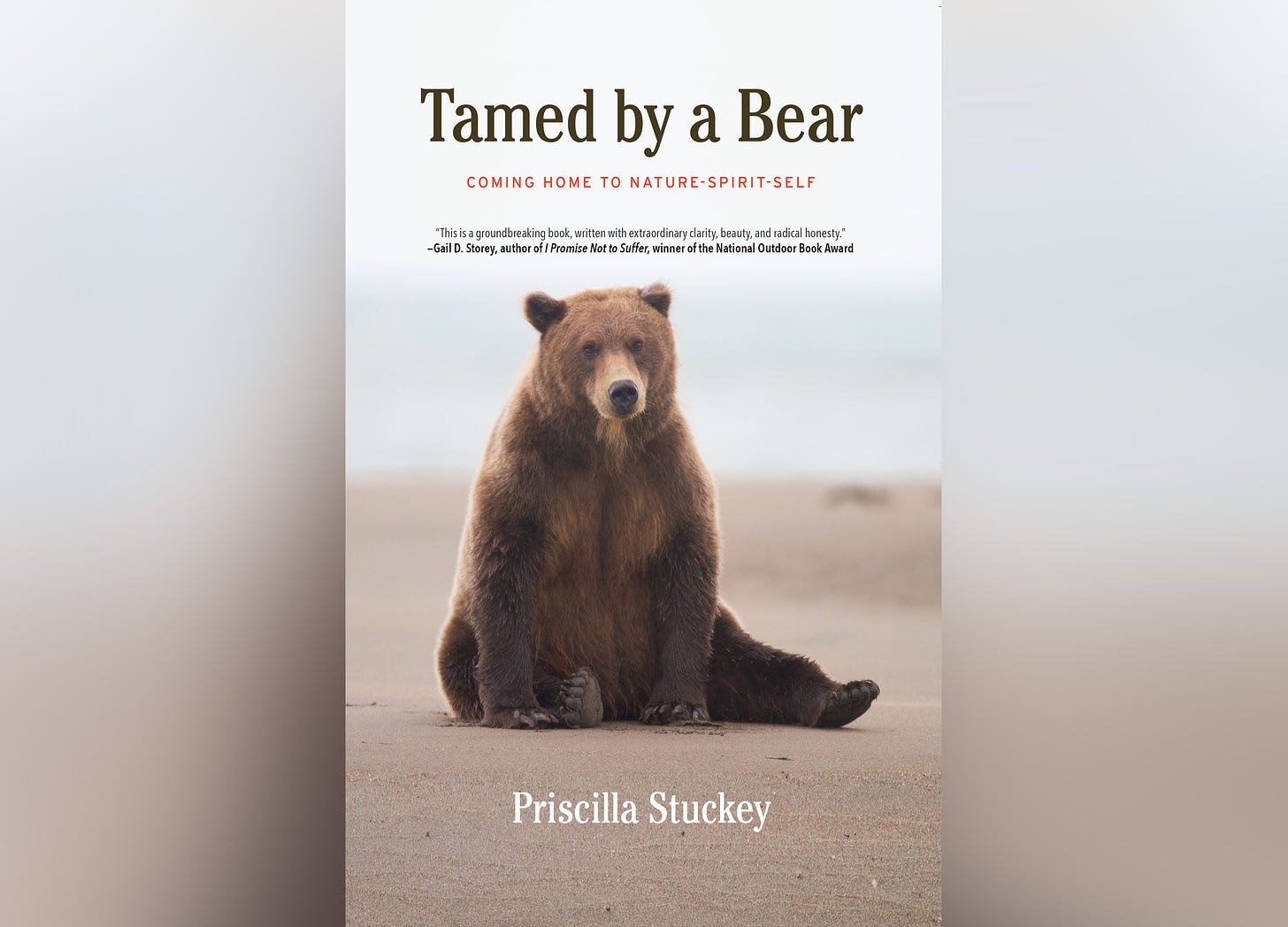I just completed some home remodeling—on my home page at Substack, that is, where my podcast is hosted. Next up will be this site—stay tuned for a complete makeover here in the coming months! To go along with the remodeling, I wrote a little guidebook to orient readers to my work. It’s a good idea now and then to spend some time figuring out—again—what one is up to, challenging though it is to put the larger vision into words. I hope you find something here to resonate with.
 Welcome to Nature :: Spirit! Where we talk about relating to nature as family, kin, and friends. Where every part of nature is not an “it” but a “who.” Where we explore how shifting our worldview makes a different—and better—world possible.
Welcome to Nature :: Spirit! Where we talk about relating to nature as family, kin, and friends. Where every part of nature is not an “it” but a “who.” Where we explore how shifting our worldview makes a different—and better—world possible.
When I was a teenager, sitting in the grass reading a book under the weeping birch tree in our yard, feelings its threads of branches brush my shoulders, I never dreamed that years later this same tree would teach me about deeper mysteries of Earth.

I was brought up in the Protestant way of regarding God as separate from nature—up there, transcendent. By the time I’d become a feminist in my early twenties, I realized that God was going to have to be found down here as well, in my body, in the ground. Then in grad school I encountered the ancient philosophy of nondualism, and that changed me once again, moving my center of authority within.
Episode 39, The Knowing Inside; or how my center of authority moved within
But it was getting felled by a chronic illness in my early thirties that shifted my worldview the hardest. Dumped off the merry-go-round of life, spending days lying on a bench in our backyard staring at a redwood tree, I struggled to make sense of things. I was stuck at home, watching my friends move on with their lives. Yet trees and plants and birds came to offer their companionship. And lacking the hustle of deadlines and work, I was finally quiet enough inside to listen to them.
I will never forget the day the birch tree of my youth surprised me by visiting me in spirit. It was a farewell visitation, I found out later when I spoke with my brother, who said the tree was dying. My old friend had come to say goodbye.
Episode 4, Listening to Nature; or how I learned that trees can talk
The experience shifted me into a different way of perceiving; I crossed a threshold. After that day I could never again regard the beings of Earth as merely things, or the soil and plants and rocks as merely resources. I was thrown into a world of relationships, and I’ve been learning ever since what that means.
Not long after the birch tree helped wake me up, I encountered the words of Carol Lee Sanchez of the Laguna Pueblo.
Related: Episode 40, Trusting Inner Knowing
Sanchez wrote, “There are trees and grasses and flowers and birds and ants and bees waiting for you to . . . say hello to them—to call them sister, brother, cousin, or friend. They are your relatives; they hear your thoughts as you travel around your town or city.”
Her words took root in me, and they were blossoming years later when I wrote my first book, Kissed by a Fox: And Other Stories of Friendship in Nature (2012). It tells the story of the birch tree—and the bald eagle and the creek and the red fox and others—who nudged me toward seeing every part of nature as alive, as animate. As “whos” instead of “its.” And it tells the larger story of a Western culture that gave up on the intelligence and heart animating every part of Earth. It shows how the stories of nature we tell ourselves, in our science and religion, keep us locked in a way of life that is threatening our very survival on Earth.
Our story of nature needs to change.
At Nature :: Spirit we seek to walk in that change. Through podcasts and posts (up to twice a month) we deepen our connection to Nature-Spirit, and we explore how shifting our worldview makes a different—and better—world possible for all of us here on this precious Earth.
Indigenous traditions have had it right all along: the Earth, and every part of it, is alive. Indigenous peoples relate to all other inhabitants of Earth as kin, which is what has empowered them to steward the Earth with such care.
This is a hint of the better world that is waiting when we shift our story of nature—a way of life directed toward caring for the Earth and one another.
Episode 24, A Duty of Care: Four Indigenous voices on caring for land and people
When every part of nature is a “who” not an “it,” the world gets better in other ways too.
In a world of subjects, not objects, we humans are not more worthy than anyone else; we are just one part in the circle of creation. Nature has a radical commonality; it’s a web of kinfolk where all of us matter and all of us together are creating a future we will share. And we need to offer reciprocity and respect to others if we want to survive. These are values that Indigenous peoples have been practicing for millennia; the rest of the world needs to learn from them, and we need learn quickly. The Earth asks it of us.
Episode 45, What Does the Earth Ask of Us? From a talk by Robin Wall Kimmerer
If the world is made up of subjects, not objects, then owning nature or any piece of it violates the circle of kinship. As Native people say, “You can’t own your mother!” Right away the current system of landownership is called into question, and capitalism loses its ground—literally. Then we are free to imagine a world where nobody profits from owning land, and commodifying the others of the Earth becomes unthinkable.
Episode 48, What If Land Were Not Property?
The current Western worldview is taking us to the brink of destruction because it doesn’t make sense. It’s not aligned with how nature works. So the next question becomes, How did we get here? Trained in history, I often explore how our society’s worldview developed. You can find a whole collection of episodes on this at the Histories of Nature link on my Substack home page.
There’s the famous idea that Western society learned to dominate nature from the creation story of Genesis. It’s an idea so common it’s taken for granted. But does the real history bear this out? We talk about this in Episode 29.
Episode 29, Where Did We Go Wrong?
And we look at a law code from ancient Mesopotamia, which became one of the foundations of Western law. It shows a structure of inequality that remains all too familiar today, a system of law founded on protecting property, as systems of hierarchy often are.
We learn too about systems of law founded on other premises, for example, how Aboriginal peoples set their law directly in the land.
Episode 17, The Law Is in the Ground
After Kissed by a Fox was published, I faced a reckoning—one of those times when Life catches up to you, sits you down, and makes you listen. At the time I wasn’t happy about it, but what I learned from it is precious beyond words. I entered a several-year period of spiritual retreat, spending time most days in shamanic-style meditation, listening to spirit by listening to nature.
One of the great gifts of a world where everyone is a “who” not an “it” is that everyone has things to say, and by training our hearts in openness and our minds to be carefully attentive, we can commune with the others of this Earth.
Tamed by a Bear (2017) grew out of my journals of the first year of that retreat. It shows me developing a relationship with an inner friend, a jovial, wise Bear who coached me toward living with clear eyes and a peaceful heart.
A shamanic-style path was at first was hard for me to embrace, and I explain why in Episode 44.
I write often about the spiritual practice of opening the heart because it’s the first step in cultivating nature spirituality.
Episode 30, Cultivating Nature Spirituality
And I also offer help for others who wish to engage in shamanic-style meditations, or spirit journeys.
Episode 23, Going on a Spirit Journey
Life, it seems, is never done with us, so in my sixties I’ve revised my story of self once again: I learned I’m autistic. It brought a feeling of relief because it made sense of certain experiences that had puzzled me all my life.
Episode 38, With Autism It All Made Sense
And if you’ve made it this far with me, thank you so much! I live now on the land of the Kānaka Maoli, the Hawaiian people, and I take a lot of joy in caring for this land. Sometimes I write about the plants and people of this island, especially about restoring our native dryland forests here on Maui.
Caring for the Local Earth; with pretty pictures of Hawaiian plants
Many readers enjoyed this post I wrote after the Lahaina fire:
Episode 43, Where Water Wants to Go
Again, welcome, and I’m so glad you’re here!
How do you connect with and care for your lands? Is your worldview shifting too? How does the land speak to you?
















